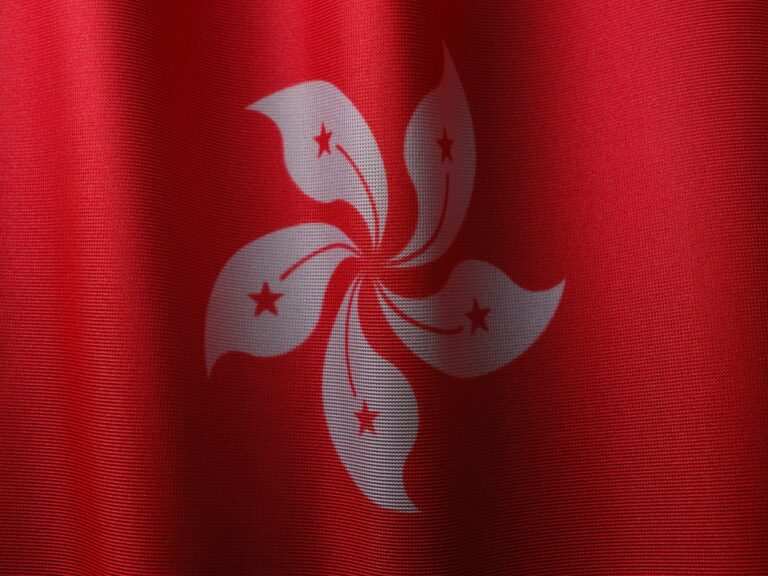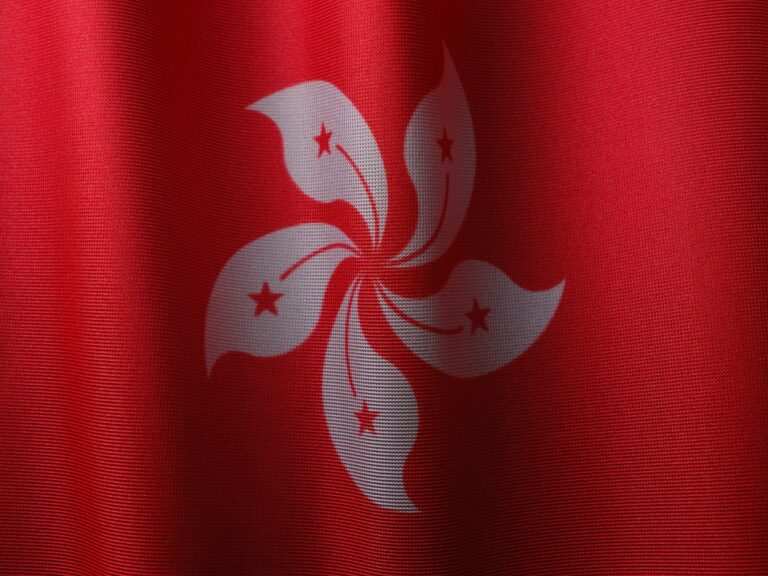
This article was originally published by Radio Free Asia and is reprinted with permission.
The Hong Kong government has paid millions of dollars to political lobbyists in Washington in recent years in a little-known overseas influence operation that aims to get U.S. politicians doing Beijing’s bidding, according to a new report from a Hong Kong activist group.
“Heavyweights and the well-connected in Washington … play an active role in advancing Beijing’s interests on American soil,” according to a new report from the Hong Kong Democracy Council.
The group has set up an influence and lobbying database to provide a detailed breakdown of lobbying activities sponsored by the Hong Kong government, and by extension, the Chinese government.
The database, drawn from publicly available filings under the Foreign Agents Registration Act, or FARA, lists over 1,000 interactions between U.S. government officials and Hong Kong government-funded lobbyists, the council said in a summary of the July 5 report published on its website.
The council also called on Congress to pass a bill currently in the pipeline that would revoke the diplomatic privileges of the Hong Kong government’s representative offices in the United States, the Hong Kong Economic and Trade Offices.
The report found that China, “which has a well-documented history of orchestrating foreign-influence campaigns, has been ramping up efforts to sway U.S. politics, media, and society,” spending more than US$292 million over the past six years on its American influence operations.
Key role
It said the government-linked Hong Kong Trade Development Council, which is registered in the United States as both an agent of a foreign government and a foreign principal directing lobbying efforts, plays a key role in those operations, playing “an important role as a financial facilitator of the [Hong Kong] government’s overseas political activities.”
Contacts between American officials and agents of foreign governments, including those that use lobbying firms, are reported under legislation governing foreign agents, and the listings show that officials from both the Trade Development Council and the Hong Kong Economic and Trade Offices have been active in lobbying activities in recent years.
“Throughout the 2019 protests and in the years following, the Hong Kong Trade Development Council has continued to act as a conduit for [Hong Kong] government funds, appearing as the foreign principal for every single one of the more than 400 reported interactions between [Hong Kong] government lobbyists and American politicians and government officials,” the Hong Kong Democracy Council report found.
One of the Hong Kong government lobby’s key aims during the protests was to prevent the passage of the Hong Kong Human Rights and Democracy Act, which rewrote U.S. policy towards the city, the report said.
Such lobbying attempts were “in direct conflict with the overwhelming democratic aspirations of Hong Kongers in both Hong Kong and the United States,” it said.
Lobbyists hired by the body report to the Washington Hong Kong Economic and Trade Office, the report said, citing its contract with lobbying firm Akin Gump Strauss Hauer & Feld.
Tapping into influential network
And while those who lobby for the Hong Kong pro-democracy camp are typically refugees and exiles who lack funding, and who may not yet even enjoy secure immigration status, the government is able to tap into a network of wealth and privilege at the heart of American political life.
“People who lobby on behalf of the Hong Kong Special Administrative Region government are basically well-connected, wealthy and powerful people who move in government circles in Washington,” Hong Kong Democracy Council researcher Mason Wong told Radio Free Asia. “Many are former members of Congress and former officials from both parties.”
“There’s a broad, bipartisan network of well-connected elite people who are helping the Hong Kong government with its advocacy work and extending Chinese Communist Party interests on U.S. soil,” he said.
According to the report, that network includes the Sing Tao media group, which is registered as the non-government client of a foreign power under FARA.
“A questionable entity like Sing Tao advances Beijing’s interests in multifaceted ways, far beyond taking advantage of the American free press — as do the likes of China Central Television and Russia Today — to shape public opinion,” the report said in a case study summarizing reports that the media group is part of Beijing’s secretive United Front influence and outreach operations in the United States.
Yet the group is the single largest spender among FARA-registered entities from Hong Kong, according to the report.
“Little information is available on what exactly it does, or what the specific nature of its work as a ‘foreign agent’ entails,” it said.
‘Serious problem’
Hong Kong Democracy Council executive director Anna Kwok, who is among eight overseas activists listed on Monday as wanted by the city’s national security police, who have offered a bounty of H.K.$1 million for information leading to her arrest and prosecution, said she finds a certain irony in the fact that she has been accused of “colluding with a foreign power” under the national security law.
“What I find ironic here is that the Hong Kong government was accusing me just a few days ago of collusion with foreign forces,” but if you actually look into it, you will see that they’re actually working very hard themselves to be in contact with foreign forces, to work with them, and to win their support,” Kwok said.
According to Wong, who wrote the report, people might be forgiven for thinking that when Hong Kong’s economic and trade representatives in Washington contact local politicians, they want to discuss trade and economic ties.
“But when they meet up with American congressmen and women, they don’t want to talk about trade, but about the Hong Kong Human Rights and Democracy Act,” he said. “It’s a white glove operation for the Chinese Communist Party … countering groups that advocate democracy and human rights for Hong Kongers in the United States.”
“It’s a very serious problem.”
‘Disguised’
Current affairs commentator Sang Pu agreed.
“These are [Chinese Communist Party] United Front operations disguised as trade and economic relations,” he said. “They want to expand these operations using state-run enterprises or quasi-government organizations.”
“It’s not just the Trade Development Council; any organization with the word ‘development’ in its name is worthy of attention,” Sang said, citing the Arts Development Council and Hong Kong Tourism Board, which has “development” in its Chinese name, as examples.
“It’s not the same as pre-1997: these quasi-government organizations have become the mouthpieces of the party-state,” he said.
Ja Ian Chong, assistant politics professor at the National University of Singapore, said that while political lobbying is legal in the United States, people may not always be aware of the provenance of some of the lobbying that goes on.
“People who aren’t familiar with Hong Kong’s situation could treat these official organizations, for example, regional and city governments, and are actually sent to lobby for the Hong Kong government,” Chong said.
“They may think they have little to do with the Chinese central government.”
American Military News Rephrased By: InfoArmed
